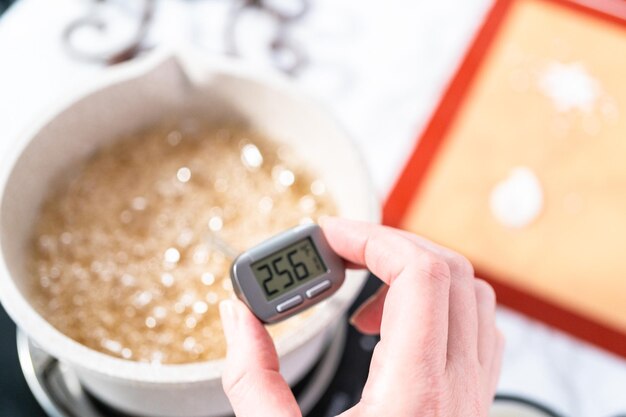Navigating Sodium Intake: A Guide for Individuals with Hypertension
Hypertension, commonly known as high blood pressure, is a prevalent health concern that affects millions globally. With a variety of causes—ranging from genetics to lifestyle factors—controlling hypertension can be a complex yet crucial task. Among the myriad of recommendations doctors offer, sodium intake often finds its place on the do-not-exceed list. But how much sodium is truly safe for those dealing with hypertension?
The Sodium-Hypertension Connection
For anyone diving into the world of dietary restrictions related to hypertension, understanding the relationship between sodium and blood pressure is essential. Sodium is a mineral needed for normal muscle and nerve function, but it’s also notorious for its role in increasing blood volume and, by extension, raising blood pressure.
Understanding Hypertension
Hypertension is defined by the persistent elevation of blood pressure in the arteries. Typically, two numbers denote blood pressure: systolic (the top number) and diastolic (the bottom number). A healthy blood pressure reading usually falls below 120/80 mm Hg. When readings consistently stay higher, it signals hypertension.
Sodium’s Role
Most dietary sodium comes from salt, or sodium chloride. While our bodies need sodium for functions such as fluid balance and nerve transmission, excessive intake can lead to water retention. This increases the volume of blood flowing through your arteries, forcing the heart to work harder and ultimately causing higher blood pressure.
How Much Sodium is Appropriate?
Determining an appropriate sodium intake level is essential for managing hypertension effectively. The American Heart Association recommends no more than 2,300 milligrams (mg) of sodium a day for the general population. However, for those dealing with high blood pressure, a limit of 1,500 mg per day is advised.
Practical Tips to Reduce Sodium Intake
Reducing sodium isn't solely about cutting out the salt shaker. Here are some approaches that can make a difference:
- Use Spices and Herbs: Enhance flavors with garlic, pepper, citrus, and herbs instead of salt.
- Read Labels: Opt for products labeled low sodium or sodium-free.
- Choose Fresh or Frozen: Avoid canned and processed foods which are typically high in sodium.
- Cook at Home: Restaurant foods often exceed daily sodium recommendations.
Recognizing Sodium in Foods
Awareness is key in reducing sodium intake. Many might be surprised to find high sodium levels in foods that don't taste salty. Processed, pre-packaged, and restaurant meals can pack significant sodium amounts, contributing disproportionately to daily intake.
Alternative Dietary Approaches
Considering broader dietary patterns can support blood pressure management beyond lowering sodium intake.
The DASH Diet
The Dietary Approaches to Stop Hypertension (DASH) diet emphasizes eating fruits, vegetables, lean proteins, and whole grains. This diet naturally contains less sodium and boosts nutrients known to help lower blood pressure, including potassium and magnesium.
Realigning Macronutrients
Balancing not just sodium but also overall nutrient intake can aid in managing hypertension. Prioritizing whole foods and reducing sugar and saturated fats can contribute to a healthier cardiovascular profile.
Myths and Facts About Sodium
Debunking common misconceptions about sodium can empower individuals with better information.
Myth: Sea Salt is Healthier Than Table Salt
Despite marketing claims, sea salt and table salt contain similar sodium levels. The primary difference lies in texture and processing methods, but both can raise blood pressure if consumed excessively.
Myth: Only Salt-Laden Snacks Have High Sodium
Staple diet foods, including bread, cereals, and certain dairy products, can be surprising sodium sources. Regularly checking nutrition labels helps maintain control over sodium intake.
Sodium Reduction and Lifestyle Changes
Holistic lifestyle adjustments, including regular exercise, stress management, and avoiding tobacco, play a vital role in blood pressure management. Let’s take a look at a few of these elements:
Exercise Regularly
Consistent physical activity enhances cardiovascular strength, improves efficiency in using oxygen, and naturally regulates blood pressure.
Manage Stress
Chronic stress can contribute to increased blood pressure. Mindfulness practices, yoga, and hobbies can serve as effective stress management tools.
Moderation in Alcohol Intake
Excessive alcohol consumption has been linked to increased blood pressure and can interfere with antihypertensive medications.
Medical Guidance and Personalization
While general recommendations provide a solid foundation, sodium intake can be personalized based on individual health profiles. Consulting a healthcare professional ensures tailored advice considering comorbidities and personal lifestyle.
Empowering Yourself with Information
Knowing how much sodium is too much is the first step in taking control of hypertension. While the task may seem daunting, informed choices pave the way to a healthier heart and life balance.
Key Takeaways for Managing Sodium and Hypertension
- 🧂 1500 mg sodium/day is ideal for hypertension management.
- 🍽️ Consider the DASH diet focusing on fruits, vegetables, and lean proteins.
- 📝 Read labels: Processed foods are often high in sodium.
- 🏋️ Exercise regularly and manage stress for additional blood pressure control.
- 🌿 Use herbs and spices to flavor food instead of salt for a healthier diet.
By following these strategies, individuals can better manage their sodium intake and support their journey toward balanced blood pressure and improved overall health.

Related Articles
- Are Eggs Bad For Hypertension
- Are Endocrine Disorders Causing Hypertension Rare
- Can Alcohol Cause Hypertension
- Can Allergies Cause Hypertension
- Can Anemci People Get Hypertension
- Can Anemia Cause Hypertension
- Can Antibiotics Cause Hypertension
- Can Anxiety Cause Hypertension
- Can Asthma Cause Hypertension
- Can Atherosclerosis Cause Hypertension
